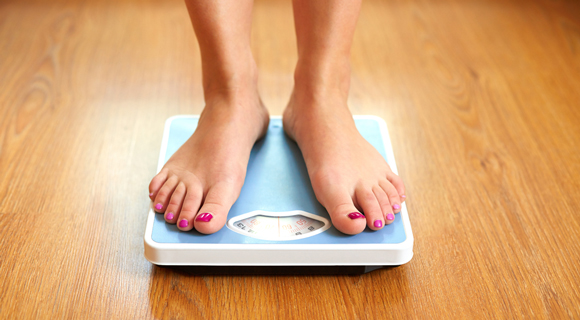
Learning about eating disorders for teens
What is an eating disorder?
An eating disorder is a condition that causes some people to have unhealthy thoughts and behaviors about food and body image. Teens with eating disorders often base how they feel about themselves on how much they weigh and how they look.
Common eating disorders include:
- Anorexia. Teens with this problem limit how much food they eat. They can become dangerously thin.
- Bulimia. Teens with this problem eat too much in a short time. Then they do something to get rid of the food, like making themselves vomit, so they won’t gain weight.
- Binge eating disorder, or compulsive overeating. Teens with this problem eat too much, too fast. They do this on a regular basis for several months.
It can be hard to know what is an “ideal” body shape or body size when TV and magazines show unrealistic images of what it means to be thin. The way a skinny model looks in a magazine or TV ad is not normal or “ideal.” Healthy bodies come in lots of shapes and sizes. Most of us will never look like fashion models or world-class athletes. But when you treat your body well‚Äîfeed it healthy food and move it in ways it‚Äôs built to move‚Äîyou can feel good about it.
What are the symptoms?
- Teens who have an eating disorder often strongly deny that they have a problem. They do not see or believe that they do. But there are some feelings and actions that are common with each type of eating disorder.
Teens who have anorexia:
- Weigh much less than is healthy or normal.
- Are very afraid of gaining weight.
- Think they are overweight even when they are very thin.
- Obsess about food, weight, and dieting.
- Strictly limit how much they eat.
- Vomit or use laxatives or water pills (diuretics) so they won’t gain weight.
- Become secretive. They may pull away from family and friends, make excuses not to eat around other people, and lie about their eating habits.
Teens who have bulimia:
- Eat way too much in a short time (called binging), often over a couple of hours or less, on a regular basis.
- Feel out of control and feel like they can’t stop eating during a binge.
- Go to the bathroom right after meals.
- Overeat but don’t gain weight.
- Are secretive about eating, hide food, or won’t eat around other people.
- Purge to get rid of the food so they won’t gain weight. They may make themselves vomit, exercise very hard or for a long time, or misuse laxatives, enemas, water pills, or other medicines.
Teens with binge eating disorder:
- Eat way too much in a short time, often over a couple of hours or less, on a regular basis.
- Eat for emotional reasons, such as being sad, angry, lonely, or bored.
- Feel like they can’t stop eating and eat so much that they feel painfully full.
- Overeat and may gain weight.
- Feel unhappy, upset, guilty, or depressed after they binge.
- Eat alone because they are embarrassed about how much they eat.
How are eating disorders treated?
Treatment for eating disorders includes counseling and sometimes medicines. Some teens use both.
- Cognitive-behavioral therapy can help teens who have an eating disorder change the way they think about food and the way they view their body. And it can help teens deal with feelings or situations that may have brought on their eating disorder. Sometimes family members take part in a teen’s therapy so that they can learn ways to support their loved one’s recovery.
- Nutritional counseling can help teens get back to and stay at a healthy weight and learn healthy eating habits.
- Medicines called antidepressants can help reduce episodes of binging and purging or treat other problems teens may be dealing with, such as anxiety or depression.
No one should feel embarrassed or ashamed about having an eating disorder. It‚Äôs not caused by personal weakness, and it isn’t a character flaw. Many teens struggle with eating disorders for a long time.
If you think you have an eating disorder, get help. If left untreated, eating disorders can cause serious health problems. Treatment can help you feel better and be healthier. If you think a friend or a family member has an eating disorder, tell someone who can make a difference, like a parent, teacher, counselor, or doctor.
Follow-up care is a key part of your treatment and safety. Be sure to make and go to all appointments, and call your doctor if you are having problems. It’s also a good idea to know your test results and keep a list of the medicines you take.
Current as of: November 14, 2014
Author: Healthwise Staff
Medical Review: Susan C. Kim, MD – Pediatrics
© 2006-2015 Healthwise, Incorporated. Healthwise, Healthwise for every health decision, and the Healthwise logo are trademarks of Healthwise, Incorporated.
Care instructions adapted under license by Kaiser Permanente. This care instruction is for use with your licensed healthcare professional. If you have questions about a medical condition or this instruction, always ask your healthcare professional. Healthwise, Incorporated disclaims any warranty or liability for your use of this information.





